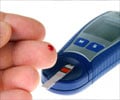- Data was analyzed from 59,325 participants in the UK Biobank who wore accelerometers to evaluate their exercise regimen during a seven-year period
- Those who engaged in over one hour of moderate- to vigorous-intensity physical activity every day were 74% less likely to develop type 2 diabetes
- Individuals with an elevated genetic risk for diabetes who were physically active had a decreased risk of the condition than inactive individuals with low genetic susceptibility
Accelerometer-measured intensity-specific physical activity, genetic risk and incident type 2 diabetes: a prospective cohort study
Go to source).
At the start of the trial, 59,325 participants from the UK Biobank wore wrist-worn accelerometers (activity trackers). These individuals were subsequently tracked for up to seven years to assess their health outcomes.
The UK Biobank is a large biomedical database and research resource that comprises anonymized genetic, lifestyle, and health data from 500,000 UK participants.
The data included genetic markers associated with a higher risk of developing type 2 diabetes. Individuals with a high genetic risk score were found to have a 2.4 times higher risk of developing type 2 diabetes compared to those with a low genetic risk score.
Exercising Your Way to a Diabetes-Free Future
The study demonstrated that engaging in over an hour of moderate to vigorous intensity physical activity per day was associated with a 74 percent lower risk of developing type 2 diabetes, in comparison to participants who engaged in less than 5 minutes of physical activity.Remarkably, even when considering other factors such as genetic risk, participants with a high genetic risk who fell into the most physically active category had a lower risk of developing type 2 diabetes than those with a low genetic risk who fell into the least active category.
Beating Genetic Odds in Diabetes Prevention
Associate Professor Ding stated, "We are unable to control our genetic risk and family history, but this finding provides promising and positive news that through an active lifestyle, one can 'fight off' much of the excessive risk for type 2 diabetes."Associate Professor Ding described moderate-intensity physical activity as movements that induce sweating and slightly elevate breathing, such as brisk walking and general gardening. Examples of vigorous-intensity physical activity include running, aerobic dancing, uphill cycling, and heavy gardening activities that cause breathlessness or heavy breathing.
The findings also carry personal significance for Associate Professor Ding, as her father was recently diagnosed with type 2 diabetes in his sixties. She expressed her joy at the study's results, stating that they provide encouragement for her family and herself to maintain an active lifestyle. The researchers hope that this study will guide public health and clinical guidelines, ultimately assisting in the prevention of chronic diseases for healthcare professionals, organizations, and the general public.
Ph.D. candidate Mengyun (Susan) Luo, who led the study, shared her enthusiasm, stating, "I am delighted to share our research results with a wide audience to raise awareness that physical activity promotes health, particularly for individuals with a high genetic risk. Whether you have a family history of type 2 diabetes or not, today is the day to start being physically active."
Reference:
- Accelerometer-measured intensity-specific physical activity, genetic risk and incident type 2 diabetes: a prospective cohort study - (https://pubmed.ncbi.nlm.nih.gov/37277158/)
Source-Medindia
















